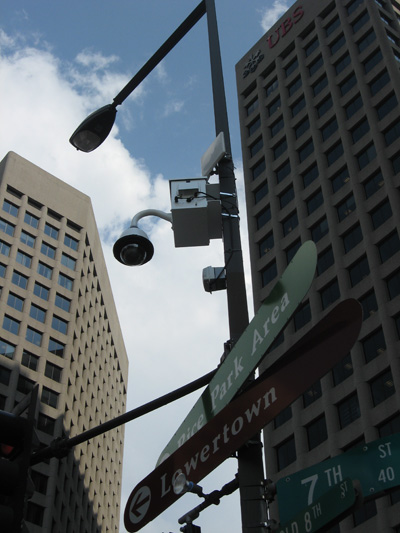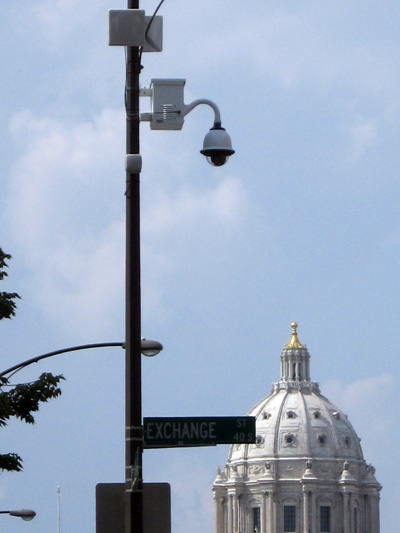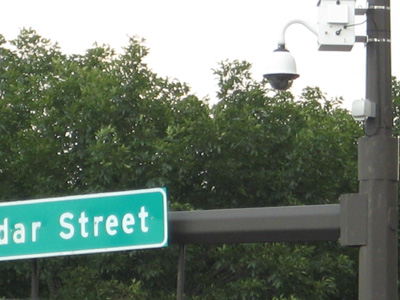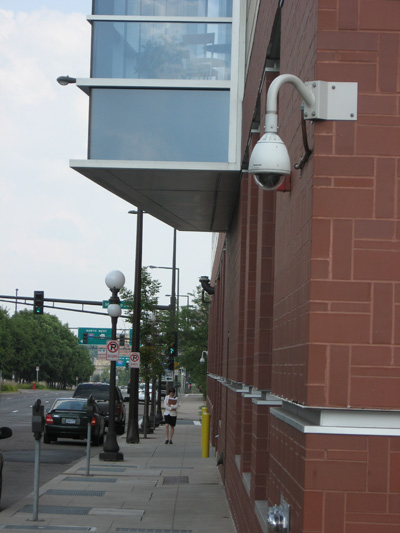I don’t know who’s at the other end of the camera that just went up in downtown St. Paul at the corner of Seventh and Cedar…

But I wonder if they got nervous when someone walked up to it and took its picture, and I wonder why they’d be nervous — or at least concerned — about being photographed.
Did they kick it up the chain of camera command when I walked up two blocks and photographed another? (I don’t know why I found the image of the Capitol in the background ironic, but I did).

And then walked another block and took a picture of the one at 10th and Cedar.

Which is about 10 feet away from the ones on the side of the human resources building.

I’m not the only one wondering. On Midday today, a caller asked who is monitoring the cameras and are they being monitored outside of St. Paul. Mayor Chris Coleman said the St. Paul Police Department is monitoring them, and Minneapolis Mayor RT Rybak recalled the brouhaha when cameras were installed in his downtown some years ago.
But that was then. Eight, nine years ago, this sort of surveillance was a big deal. But not anymore.
If you want to have some fun during the Republican National Convention, look up, and see if you can spot the people or machines that are watching you.
The issue is being debated on St. Paul’s e-democracy.org forum.
Many people don’t give a hoot if they’re legal. They’re creepy, they are unwelcoming, they’re a boon to those who want to stalk downtown residents (imagine having a camera with public access to the feed watching your home 24/7), and they ought to be sold on eBay after the convention.
.. and..
Before we adopt our own “Operation Sentinel” (the name given NYC’s plan to watch everyone all the time everywhere), why hasn’t there been a public discussion of the decision to make them permanent? How did accepting the money to pay for temporary but necessary security measures turn into permanent surveillance?
Ward 2 City Council member Dave Thune says after the convention is over, there will be a public discussion on whether they should stay.
